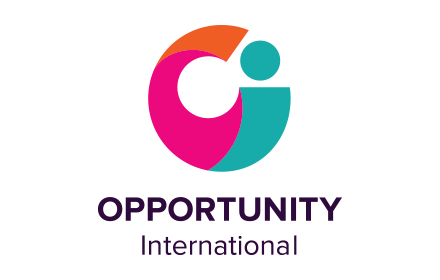LONDON, 13 June 17 – Millions more children could end up getting an education, when Opportunity International (OI) shares its experience and data on education microfinance, enabling others to invest in education.
 With 263 million children out of school, banks and other financial institutions have been reluctant to lend into developing countries’ education because – in their view – of the small margins and high risks.
With 263 million children out of school, banks and other financial institutions have been reluctant to lend into developing countries’ education because – in their view – of the small margins and high risks.
But with backing from philanthropists, donors, and impact investors, OI’s EduFinance (OEF) programme has been running counter to this trend, helping children to access affordable private education by lending to schools and to parents. To date, it has helped 2 million children access quality education.
The non-profit organization currently works with 12 microfinance institutions in ten countries and its education loan portfolio is growing rapidly, almost quadrupling since the end of 2012. It now wants to accelerate this progress by working with more financial institutions.
“We want to be an industry catalyst for affordable education, and to be truly transformational we need to persuade more players to invest into this sector,” said Nathan Byrd, who runs the OEF programme.
“That is why we are planning to share the enormous amounts of data that we have gathered, helping others to measure risk extremely accurately and to reduce that risk almost to zero,” he said.
At the end of March 2017, the OEF total active portfolio consisted of nearly 45,000 loans worth just over US$21.4 million and benefitting nearly 450,000 children. Repayment rates on its loans are more than 99 percent.
“In a very real sense, we are filling the ‘missing middle’ by which medium-sized financial institutions fail to lend into this market, put off by small margins and government regulation,” he said.
“This is a major market failure, which we simply have to correct,” he said. “Education holds the keys to poverty reduction for literally millions of families around the world.”
At the end of 2016 OEF was given grant funding to build the first open-platform credit model for education lending, developed initially for Uganda. The platform will offer automated credit algorithms, so that others can minimize the risks of lending into the education sector, allowing banks to go rapidly and effectively to scale with their education lending.
- Education is one of the most effective routes to exit poverty. If we want to reduce poverty and inequality around the world, we must increase access to education, which also contributes to better health, political stability, and economic growth. Despite this, some 263 million children are currently out of school. The reasons for this are complex, but they are at least partly about a lack of resources. Governments and donors are unable to cover all the gaps.
- Opportunity International (OI) (http://opportunity.org.uk/) is a non-profit microfinance organization, working in the education sector since 2007, pioneering new solutions through its education microfinance programme, known as EduFinance (OEF) (http://edufinance.org/).
- OEF currently works with 12 microfinance institutions in ten countries, channeling small amounts of money to large numbers of schools and parents. These loans allow schools to build more capacity and teach more children. Loans also allow parents to send their children to low cost private schools.
- Demand for these services is high. Since taking this work to scale in 2013, OEF has impacted more than 2 million children in ten countries so far (http://edufinance.org/news/2017/education-finance-reaches-2-million-children).
- Microfinance is efficient and effective. It could also be transformative. (http://edufinance.org/blog/2017/05/g7-statement-education-needs-more-resources-microfinance-can-help)
- In the long-run, OEF aims to demonstrate that microfinance can be commercially self-sustaining and therefore to attract more private money to the sector. By attracting more private money to the sector, it will help to close the funding gap.
- As a non-profit organisation, OEF’s singular objective is to enable people to lift themselves out of poverty and disadvantage. OI does not impose any religious or ideological agenda.
- Nathan Byrd joined OI in May 2012. Prior to that, he directed operations for the International Rescue Committee in Kabul, Afghanistan, where he was responsible for a budget of US$21.5 million. A US citizen, he studied at the Thunderbird School of Global Management, Indiana University, Saint Louis University, and the Cornell University College of Engineering (http://edufinance.org/who-we-are/edufinance-team/nathan-byrd).
